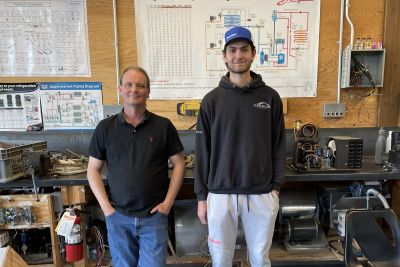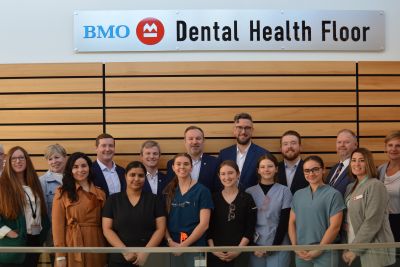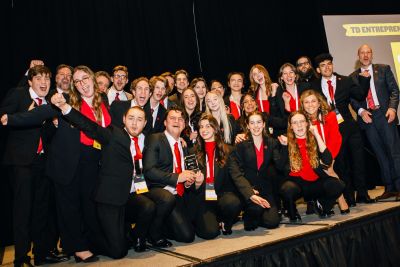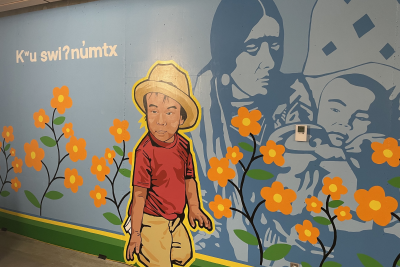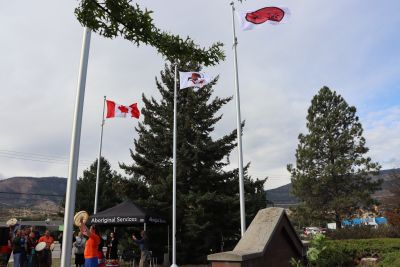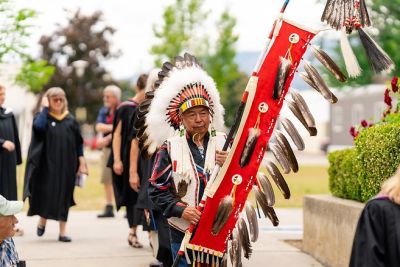Coble earns doctoral degree, shines light on Indigenous students’ post-secondary experiences
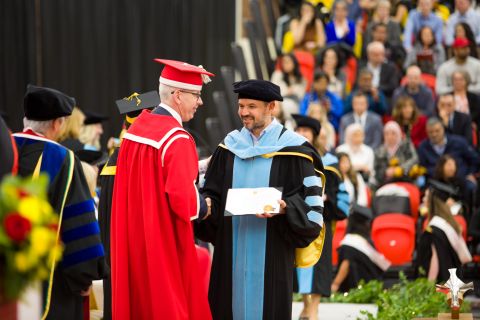
When James Coble crossed the stage to pick up his doctoral degree from the University of Calgary he was overcome with many emotions.
But for Okanagan College’s Director of Student Services and father of two, there was no emotion greater than the pride of setting a positive example for his children.
“For me, it was the completion of a seven-year journey,” explains Coble. “At the end, as I did at every stage, I reminded myself that my kids were always at the top of the list of reasons why I was doing this.”
Coble graduated with a Doctor of Education degree from U of C’s prestigious Werklund School of Education late last year. And his two daughters weren’t the only ones cheering him on.
In earning his doctoral degree, Coble also became the first member of the Westbank First Nation to do so.
“On behalf of Westbank First Nation, I am honoured to congratulate Dr. James Coble. I think it’s very fitting that the first doctoral degree earned by one of our members is a Doctor of Education, and you would be hard pressed to find a more dedicated educator and advocate for students pursuing their higher education goals than James. Through his work with students at Okanagan College, his involvement in our community, his dedication to his family and his many academic achievements James is an excellent role model and example. Both the WFN Community and Okanagan College benefits from his leadership. James, we are extremely proud of your accomplishments!” said Westbank First Nation Chief Christopher Derickson.
For his doctoral research, Coble sought to bring Indigenous students’ experiences in post-secondary into focus – literally. He employed a unique method called photovoice, a participatory action research method that employs photography and group dialogue, often as a means for marginalized individuals to communicate their understanding of a community issue or concern.
“I’ve always been interested in Aboriginal student experiences and when I came across this method in emerging research circles, I thought it would be the perfect means of enabling students to take charge in telling their stories as authentically as possible.”
Coble worked with three Okanagan College students over the course of the study. He provided each with a camera and instructions to take photos of the places, people and things that had an impact on them during their time in post-secondary. The photos were then used as the focal point of discussions.
“We talked a lot together, both in individual and group settings, considering and responding to questions like ‘what story is this photo telling us?’ or ‘how does this represent your unique student experience?’”
Students were then encouraged to tell their stories in their own words, their own voice.
“Storytelling is ingrained in Indigenous cultures across the land, so it made sense to me to empower students to think about and share their experiences through stories. My role was simply as listener at first, and then later, I worked with them to re-story their experiences. It was all about respecting the individual, honouring their voice and perspective. It was very important to me to stay true to their reasons for sharing their stories and to recognize each as unique, discreet, and rooted in context,” says Coble.
“What emerged were very intense, focused and deeply personal narratives. Each encapsulated and reflected that student’s own lived experience. And when read together, it was fascinating for us to see the common narrative threads, the shared experiences. It reinforced for me that we as educators and administrators need to understand that every student carries with them their own stories, perspectives, histories – and that we need to respect and support them as they embark on their own educational journeys.”
Coble has served as Director of Student Services for Okanagan College since 2014.
He has played pivotal roles in supporting students at the College for nearly two decades, since joining OC in 2001 as an education advisor and Aboriginal mentor. In 2006 he took on responsibility of coordinating the Aboriginal Services department, a position he held for eight years before stepping into his current role.
“James is a tireless champion for students at the College, and a highly valued member of our leadership team,” says Okanagan College President Jim Hamilton. “His intelligence, intrinsic leadership abilities, caring demeanor and drive for lifelong learning are an inspiration to all of us who have the pleasure of working with him.”
Prior to commencing his doctorate, Coble earned a bachelor’s degree in education from the University of Victoria and a master’s degree in exercise psychology, also from UVIC.
Tags: Indigenization, Indigenous Services, Services for Students, Truth and Reconciliation

